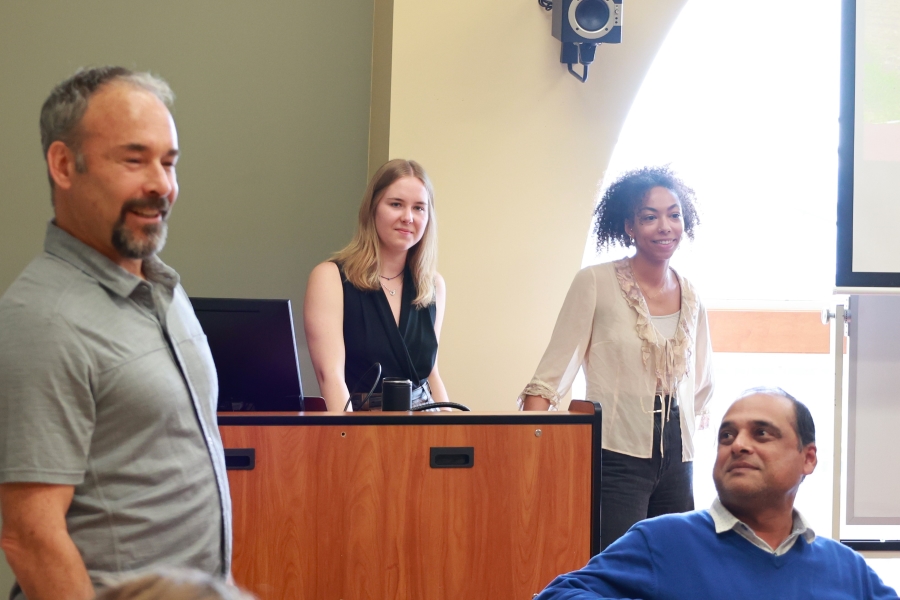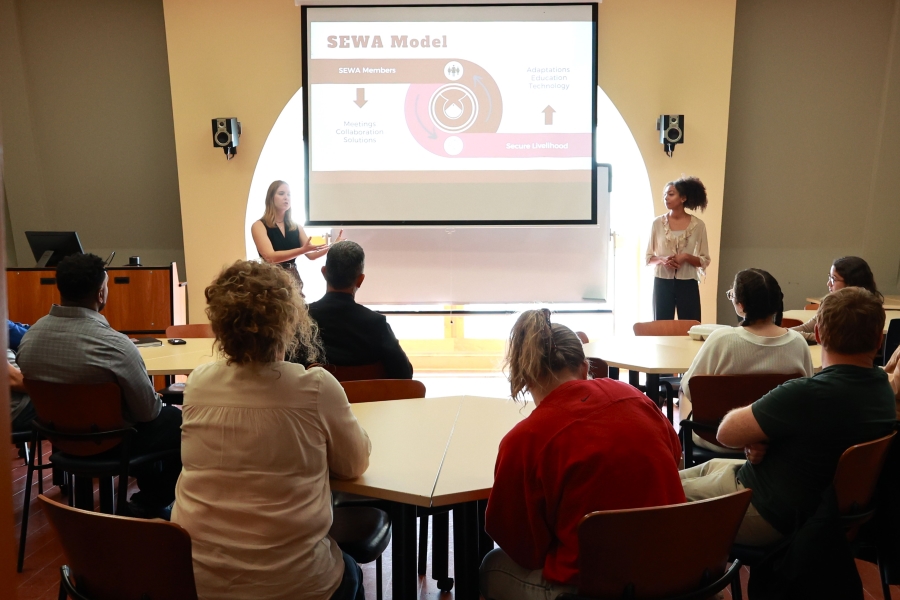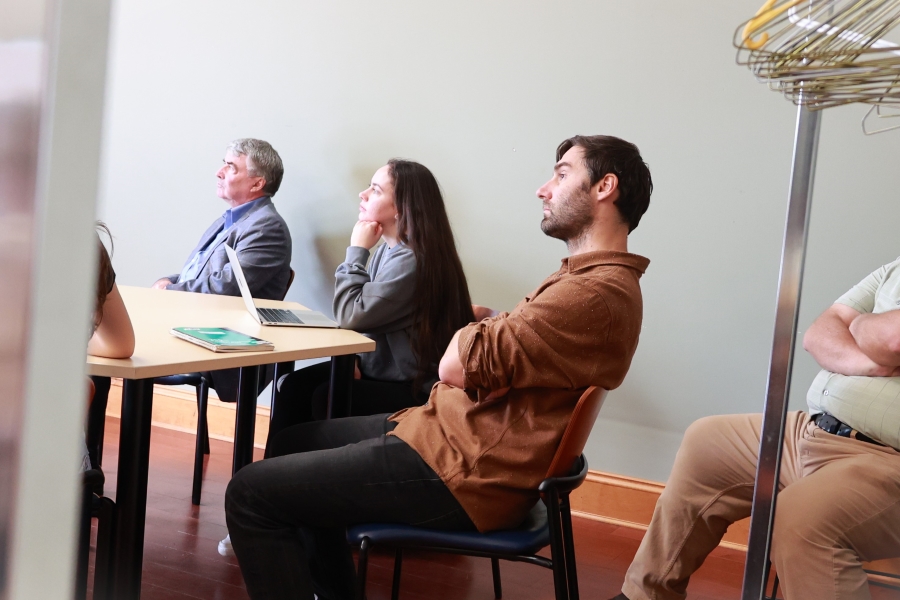St. Francis Xavier University (StFX) students Emma Jewkes and Sydney Anthony recently travelled to Ahmedabad, India as part of the Sears Internships in Social Enterprise Program – an initiative launched as part of the John T. Sears Chair in Corporate Social Responsibility at StFX’s Schwartz School of Business.
Hosted by longtime Coady partner, the Self Employed Women’s Association (SEWA), the students worked alongside the organization to conduct participatory research on the impact of climate change for women working in India’s informal economy.
“We decided on the focus group format because we wanted it to be an efficient way to collect experiences from lots of different women,” Emma explained.
“SEWA was really able to identify the opportunities in green entrepreneurship. They recognize this new market – they recognize that there’s not really a formal gender norm that has been set [yet]. And they really want the women to be able to take up space in this new market.”
SEWA is the single largest central trade union globally, with more than 2.5 million members across 18 states in India.
“SEWA has been working for over five decades to improve the livelihoods of poor self-employed women workers from the informal economy through various initiatives using technology, technical training, microfinance, market linkages, and natural resource management across over 125 different trades with the twin goals of full employment and self-reliance” their website states.
Emma and Sydney presented their research findings in a recent presentation to StFX faculty, staff, students, and local community members.
“The women are experiencing decreased productivity and working hours [because of the heat]. They’re also having health related issues because of the extreme heat. They’re becoming dehydrated because water can sometimes be hard to access. They’re facing heat stroke and heat shock, fatigue, fainting, nausea, and vomiting,” Emma explained.
“There’s also school closures because it’s simply too hot for children and for teachers to be able to exist in that environment.”
The duo also shared how unseasonal rains are impacting the agricultural sector.
“Crops are getting destroyed – rain comes too soon, the crops are too young, and they’re completely flooded. Crops that are stored in their yards are drenched and get moldy and they can’t be sold. There’s also flooding that just completely washes out fields. The ground is not porous, it’s not ready to absorb the rain in the dry season.”

Dr. Brad Long, Emma Jewkes, Sydney Anthony, Yogesh Ghore.

Emma Jewkes (L) and Sydney Anthony (R) present their research.

Staff, faculty, students, and community members listen intently.
Sydney says they were not only interested in learning the ways in which climate change has impacted these workers, but also in the innovative ways in which the women are adapting to these challenges.
“We wanted to learn more about what measures they were taking to really be able to cope with these shocks,” she explained.
The workers are “drinking more water, eating less spicy food, and wearing protective clothing to protect themselves from the heat” as well as adapting their working hours “to avoid working through the hottest periods of the day” when possible, she explained.
Sydney also explained that the women are leveraging clean technologies to not only help adapt to changing working conditions, but also reduce energy and water waste, and help ‘close the loop’ in an effort to contribute to circular economies.
“Solar lights are allowing women to work later into the day and avoid working during the heat. They’re also being used as an alternative form for pesticides during the night, as well as solar fans and irrigation pumps,” Sydney explained.
“We visited a woman who said that it was saving her lots of time as she didn’t have to do [the work] manually. [She also said] it was cost saving for water, as it uses precision irrigation, so plants are only using the amount of water they require.”
“It broadened our horizons on the impacts and the significance of climate change globally. We also learned a lot about collaboration and unity.”
The duo explained that the SEWA Bank, which operates as a Savings and Credit Cooperative Society (SACCO), has several initiatives designed to help SEWA members access such technologies, in addition to financial literacy and training programs. The bank has become a significant resource when it comes to planning and saving for the economic shocks that may coincide with increasingly severe weather events.
Emma and Sydney also emphasize that SEWA is leveraging industry changes to help break down barriers for women as leaders in local and global economies.
“SEWA was really able to identify the opportunities in green entrepreneurship,” Sydney explained.
“They recognize this new market – they recognize that there’s not really a formal gender norm that has been set [yet]. And they really want the women to be able to take up space in this new market. So, they’re doing this by training the women, also the women’s daughters, in installation and maintenance services for green technology.”
Dr. Brad Long, the John. T. Sears Chair in Social Responsibility at StFX, and Yogesh Ghore, Program Teaching Staff and Strategic Partnerships Advisor at Coady Institute are supervising the students’ research.
Emma says this opportunity has been meaningful both professionally and personally.
“This was definitely the farthest either of us had traveled into a country and a community that is different than our own. We were embraced the entire time we were there with generosity and kindness.
“It broadened our horizons on the impacts and the significance of climate change globally. We also learned a lot about collaboration and unity.”